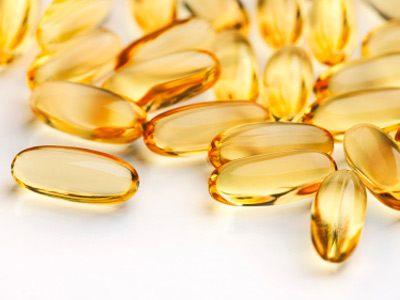CoQ10: A Powerful “Un-Vitamin”…
Coenzyme Q10 may not be a vitamin, but its role in the human body is just as – if not more – important. You see, this compound, also known as ubiquinone, is a critical component of the electron transfer chain in mitochondrial respiration where a cell’s energy is produced. In other words, our bodies depend on it to stay energized and keep things running smoothly.
It makes sense, then, that CoQ10 is found in the highest concentrations in organs that have the highest metabolic energy requirements, such as the heart, kidney, liver and skeletal muscle.
In fact, it was from a cow heart that CoQ10 was first discovered and isolated in 1957. That same year, scientists found the compound present in the livers of rats. In 1958, researchers at Merck determined its chemical structure and became the first to produce it as a possible treatment for cardiovascular disease. Unfortunately, interest soon turned to pharmaceutical drugs, and study into CoQ10 waned in the United States.
However, clinical use of CoQ10 to treat cardiovascular disease began in Japan during the 1960s. By the 1970s, research into the effectiveness of this compound in heart problems and other diseases had begun in earnest. In the past several decades, studies in Europe, Japan, and even the U.S. have uncovered powerful antioxidant properties in CoQ10.
Today, Japanese adults rely on CoQ10 as their treatment of choice for cardiovascular disease. More Americans are also becoming interested in the potential benefits of CoQ10.1,2
But is CoQ10 all it’s cracked up to be?
Take This Supplement to Heart: CoQ10 Benefits…
CoQ10 undoubtedly seems to hold the most promise for improving cardiovascular health, and most recent studies have focused on this area. Research has shown that the compound appears to help relax and dilate blood vessels, which in turn can help decrease blood pressure.3,6
And as an antioxidant, CoQ10 may help protect against heart failure by preventing oxidative damage by harmful free radicals. Indeed, congestive heart failure has been strongly linked with significantly low levels of CoQ10.3
Clinical studies suggest that adding supplemental CoQ10 to conventional medication may decrease symptoms (such as shortness of breath, swelling, enlarged liver, and insomnia) and improve quality of life in people with mild to severe congestive heart failure.3,7,8
For instance, one study of 23 men and women with congestive heart failure found that those who took 100 mg of CoQ10 three times a day for 4 weeks had better blood vessel function than those who received placebo pills.4
Other studies show that CoQ10 supplements may decrease the risk of future cardiac events in people who have recently suffered a myocardial infarction (heart attack).9 For example, researchers looked at 21 patients with congestive heart failure who took either 100 mg of CoQ10 or a placebo pill three times a day for 4 weeks. They found that the supplement improved heart muscle health and function, without side effects.5
Plus, there’s good evidence that statin drugs used to lower cholesterol also deplete the body’s natural levels of CoQ10. Studies show that people who take statins can benefit by supplementing with CoQ10. Other research has found that CoQ10 may help lower systolic blood pressure by 11 mmHg and diastolic blood pressure by 7 mmHg in people with hypertension, compared with placebo.3,6
See more at: naturalhealthsherpa.com
Source: naturalhealthsherpa.com




